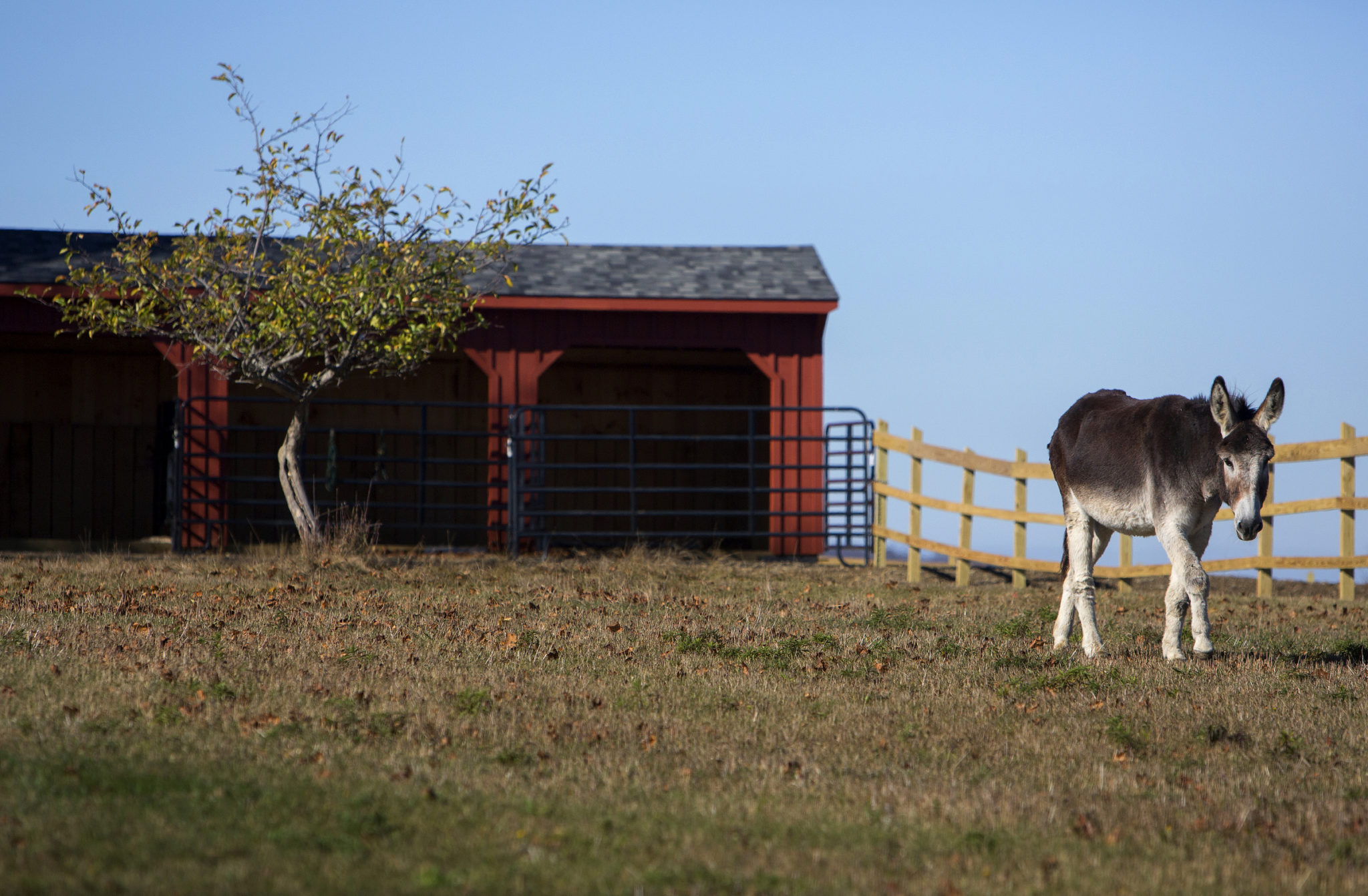What are donkeys good for?
Donkeys can be stubborn, but they are also intelligent, attentive animals that are good draft animals, guardians for other animals and more.

on Thursday. | Anthony
When small-scale livestock farmer Rose Rapp first got donkeys seven years ago, she hoped that they would guard her flock of sheep from predators.
What she didn’t expect was that she would quickly start to love them for who they were, not just for what they could do for the farm.
“I always enjoyed horses, but at the same time, I always found them to be incredibly high maintenance and flighty,” the Morrill, Maine, woman said recently. “That’s not what donkeys are. They’re really cool. They like to hang out with you, they like to go on walks with you. They follow you around. My farrier said, ‘You know, Rose, you basically have long-eared dogs. Grass-eating dogs.’”
In short, Rapp is one of the Americans who have discovered that donkey ownership is for them. Donkeys, a member of the horse family, have been domesticated for around 5,000 years. They have long been used as pack animals and for draft work in agriculture and more, but these days, some folks are deciding that the donkey’s intelligence and attentiveness are making them suitable as pasture pets, as a guardian for livestock and sometimes as a companion for horses. Donkeys may have a reputation for being obstinate and noisy, but that is far from the whole story, their fans assert.
“Donkeys can be incredibly stubborn,” Rapp said. “The difference is, if you create a relationship with them that’s based on respect, they will do just about anything for you.”
How to choose a pet donkey
According to the American Donkey and Mule Society, people should be choosy about selecting their pet donkeys. An intact male donkey, called a jack, is not the right choice for a pet, they said. Jacks can be too rough on livestock and have been known to kill the animals they are meant to protect.
“Get a jennet [female] or gelding, and if you do not really have a lot of prior horse/ equine experience, you probably want to start with an older animal, before you go through the joys of learning about donkeys and babies at the same time!” the society wrote on its website.
The group also urged people interested in donkeys as livestock guardians to get a mature animal that is at least three years old, as younger ones are still growing in both mind and body. Standard, not miniature, donkeys are recommended for guard duty.
Rapp said that her donkeys have been great guard animals.
“They protect the flock from coyotes and foxes. They’ll crush their skulls,” she said. “They’ll either stomp with their front hooves or kick with their back hooves. If a coyote’s too close, and it gets in the way of those back hooves, they get crushed.”
Donkeys can have calming effects on nervous horses
Heather Archer of Exeter, Maine, said that she became interested in donkeys several years ago somewhat by chance, when she learned that many donkeys needed to be rescued from a Texas feedlot. She helped move 55 donkeys in total, and ended up adopting some herself.
She believes that a donkey by itself can get lonely.
“If you can take one, you really should take two,” she said, adding that she has found that the donkeys can have a calming effect on her horses. “We find that some horses take comfort in the donkeys. The donkeys are very good at paying attention to things. They bray when anything is out of the ordinary. People, animals, anything that’s out of place, they will let you know.”
Archer said that donkeys can be trained to be ridden and to drive a cart, and that her well-trained donkeys are patient with her children.
“They are extremely loyal and they’re excellent pets,” she said. “They seem to really love children.”
What pet donkeys need to thrive

Just as horses do, donkeys need room to roam around and access to a secure shelter where they can get out of the wind, rain and snow. They also need plenty of fresh, clean water, vaccinations, regular hoof care, dental care and hay to eat among other requirements. And they can be noisy — a donkey’s bray can travel a long distance, Rapp and Archer said, adding that for them, the noise and the care is well worth it.
“They’re so cute,” Rapp said. “They stick their heads up in the air, those big long ears, and when they get really excited they sit there and bray.”
Still, she encourages those interested in donkeys to get hands-on experience before they take one home.
“If someone’s not ever owned an animal, they should go and find someone that has the animal they’re interested in and go and spend time with them,” she said. “Books are great. But having that hands-on experience is vital.”
